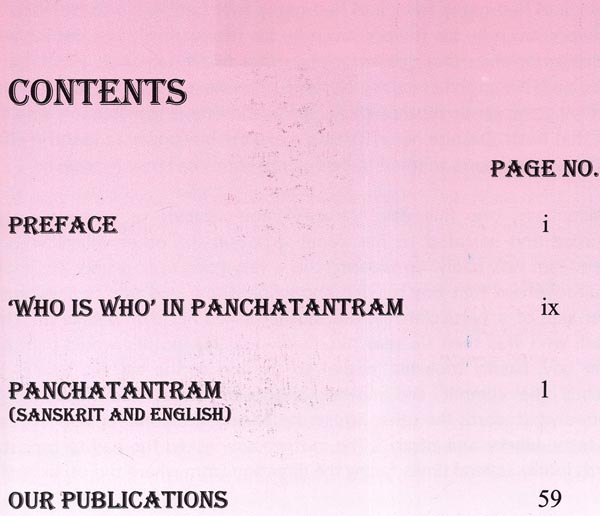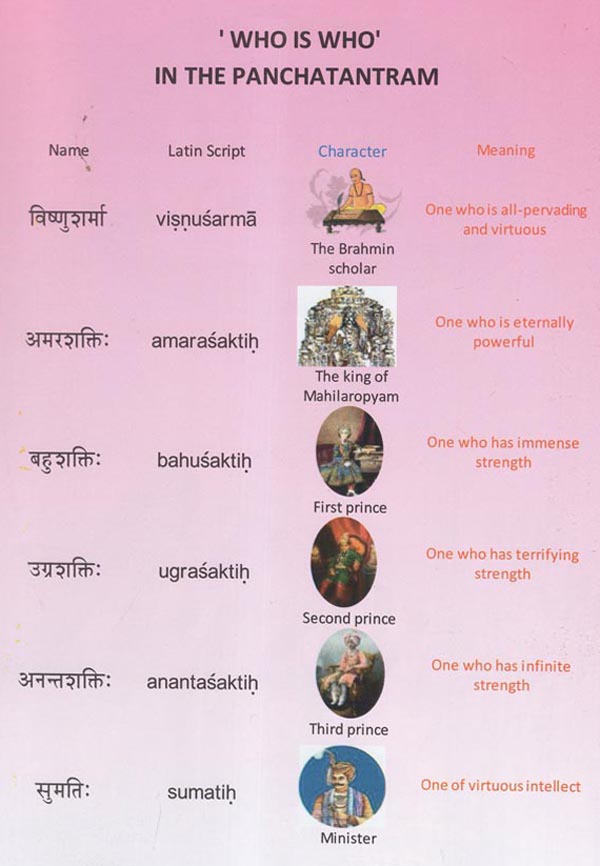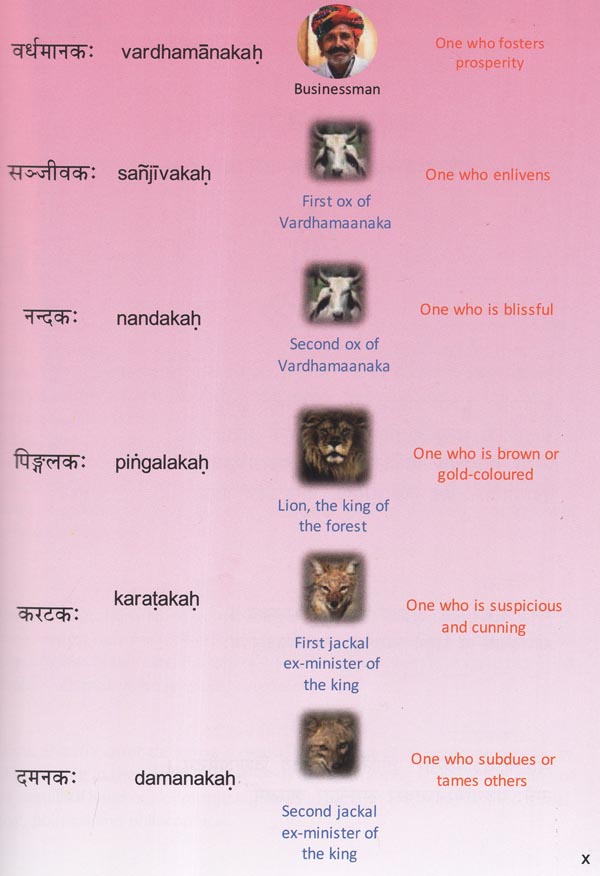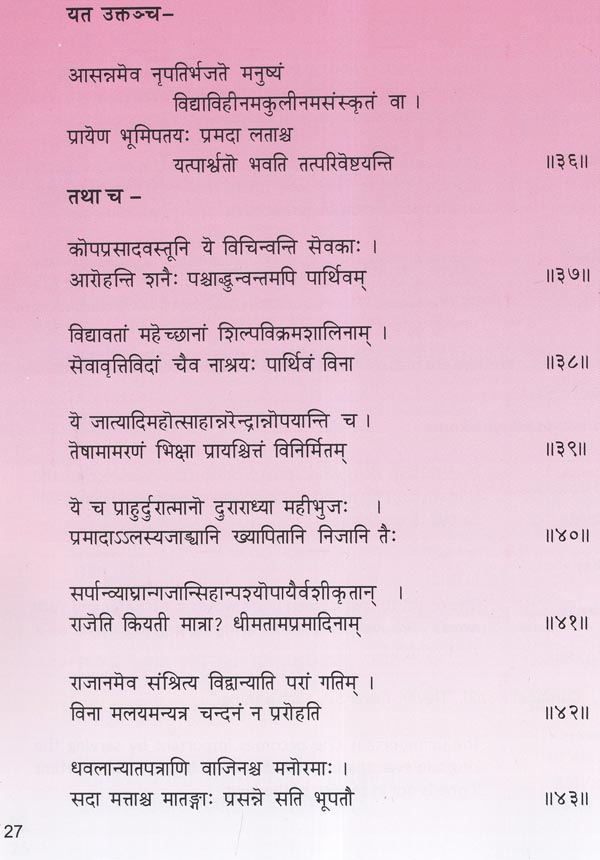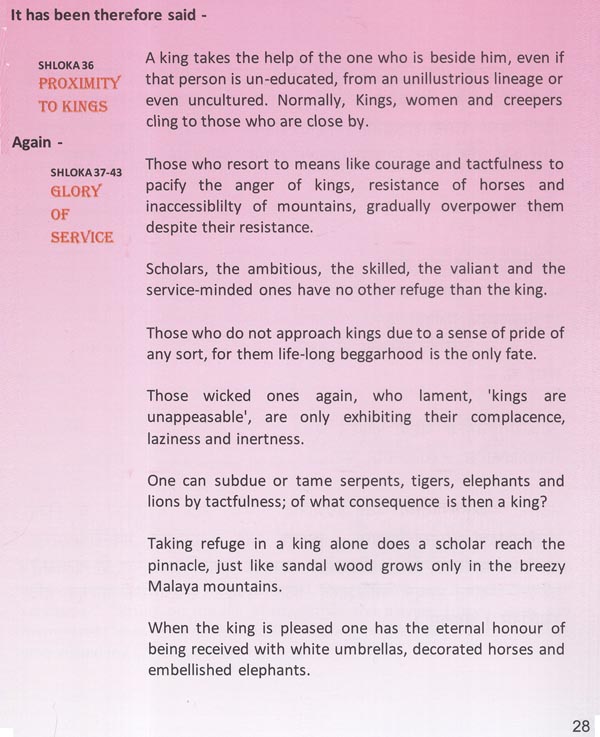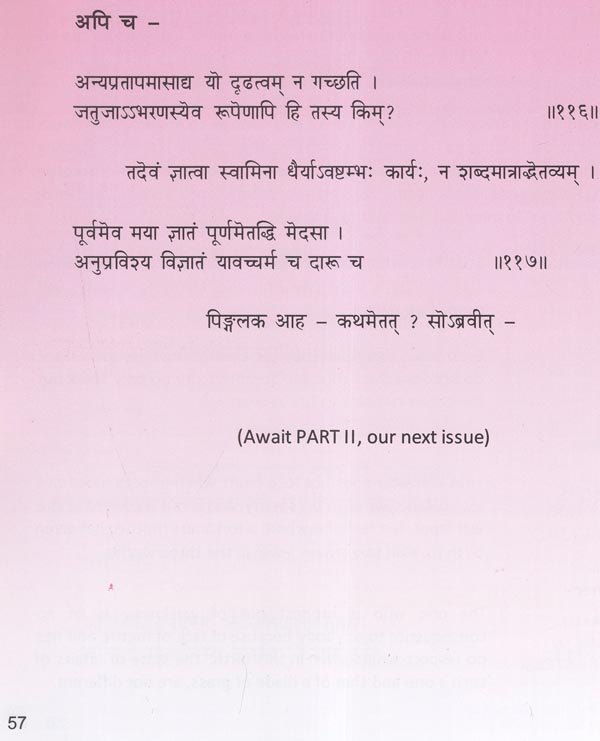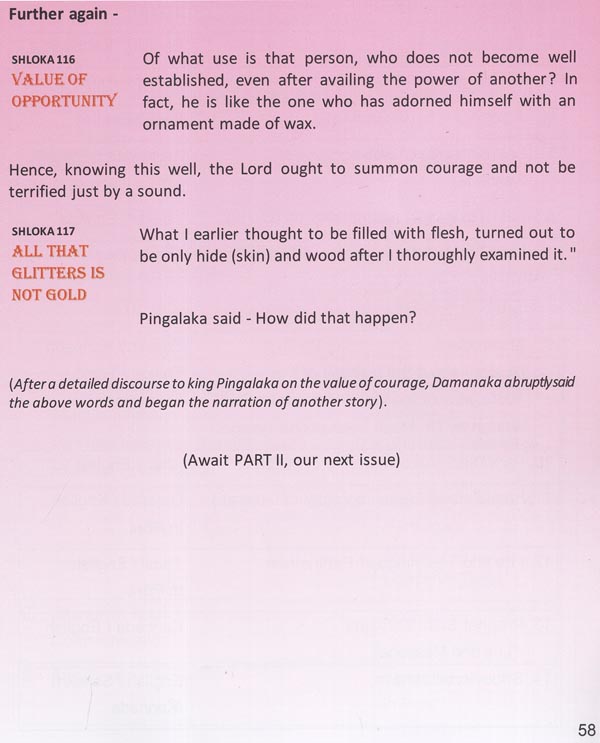
Panchatantram
Book Specification
| Item Code: | NAZ006 |
| Publisher: | Sri Kailash Aashrama Mahasamsthana, Bangalore |
| Language: | Sanskrit and English |
| Edition: | 2017 |
| Pages: | 58 (Throughout Color Illustrations) |
| Cover: | PAPERBACK |
| Other Details | 9.50 X 7.50 inch |
| Weight | 260 gm |
Book Description
"Once upon a time, there lived a boy named Gopal. He was of the same age as you are. He was as brilliant as you are. He used to study very well in the school and had many friends. Though he was good in his studies and was liked very much by his friends and teachers, occasionally his mother would receive complaints that her son used very abusive language which he had picked up while in the company of some other boys who used such language. The loving and gentle mother was worried and hoped that her son would get over that habit. Despite her efforts to make the boy understand the ill effects of such a habit, there seemed to be no impact on the boy whatsoever.
Providentially, one fine day, the boy came running to his mother quite disturbed and narrated to her about a boy in the other village who had abused him very badly. Considering this a very good opportunity, the mother enquired where that boy resided and when Gopal said that he lived on the other side of a particular hill, the mother asked her son to take her there. Gopal, who was then six year old, happy that his mother would punish the other boy, hastily took his mother to the top of the hill. No sooner they reached the summit, the mother understood what had happened and queried what words the other boy had used. The little one replied, "He called me fatty, blacky and grizzly." The mother now asked the boy to repeat the words loudly several times facing the direction from where the other boy had abused him. Gopal heard the same words coming back from that direction as many times and as loudly as he uttered them. The mother now implored her son to call the boy on the other side with friendly words - "sweety", "pally" and "smarty". As before Gopal heard the same words coming back from the direction where the other boy lived. The mother asked him to repeat the same words loudly many more times. Gopal did so and beaming with delight said, "Mummy! He has become my friend. He is so loving." The mother said, "Yes, Gopal, if we are friendly, others also will be friendly to us." No sooner the boy heard this story from his mother, he hugged her tightly and vowed saying, "Mummy, I shall always be friendly with others and use only good and affectionate words."
Even to this day and perhaps for ages to come, humans - whether infants, adolescents, teenagers, youth, middle-aged or even centenarians or veterans, literate or illiterate, educated or uneducated, whether from the North, South, East or West, whether living in villages or cities, will always love to listen to or tell stories, from cock and bull to true stories.
The universe is a mystery to man. It continuously prompts and challenges a man's intelligence. It evades conclusion about itself. Man, being a part of the universe, sees it in two forms - 'everything other than himself' as object and 'himself' as the subject. It is the nature of objective analysis to lead man away from himself. Philosophy begins when man makes himself the object.
Successful existence with a blend of both mundane experiences and lofty spiritual experiences, comprises a harmonious balance between objectivity and subjectivity. Indian scriptures have called the 'sum total of a virtuous life' and a 'balance in the Cosmos' as 'Dharma', indicating a relationship between man's actions and their result on himself and the universe.
Book's Contents and Sample Pages
